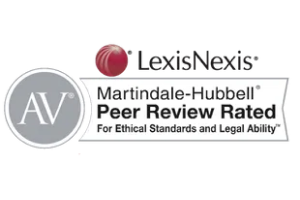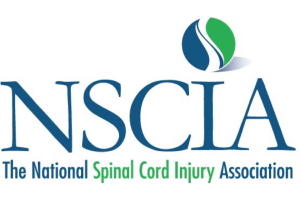Product Liability FAQs
Georgia Product Liability Attorneys Answer Questions
Frequently Asked by the Victims of Defective Products
We are Georgia civil trial attorneys who have considerable experience handling product liability lawsuits in Georgia and the surrounding states of Alabama, Florida, South Carolina and Tennessee. We have prepared answers to some of the most frequently asked questions posed by people who believe their injury or family member’s death was caused by a defective or unsafe product.
- Under what circumstances can I pursue a product liability lawsuit against the company which produced a dangerous product that caused my injury or the death of my family member?
- In what ways can a product be considered “defective” for purposes of a product liability lawsuit?
- What is the difference between a manufacturing defect and a design defect?
- Can a product manufacturer be held liable for its failure to warn about the dangerous properties of its product?
- Can a company be held liable for failing to take action when it learns that people are being hurt or killed by a product that company has been producing?
- Who can be held liable for injuries or deaths caused by a dangerous or defective product?
- What is “strict liability?”
- Are all products subject to product liability laws?
- How do I know whether the product causing my injury was “defective?”
- Can I file a product liability lawsuit even if I had not purchased the product which caused my injury or death of my member?
- Do I need to have possession of the defective product in order to file a product liability lawsuit?
- Is there a time limit for filing a product liability lawsuit?
- What damages can be recovered in a Georgia product liability lawsuit?
- Can punitive damages be recovered in a Georgia product liability case?
- In Georgia, who gets to collect any punitive damages awarded by the jury in a products liability trial?
- I have often heard that most product liability lawsuits are frivolous and cause American products to be more expensive – is that true?
1. Under what circumstances can I pursue a product liability lawsuit against the company which produced a dangerous product that caused my injury or the death of my family member?
To pursue a product liability claim in Georgia and most other states, the plaintiff must be able to show that the defendant’s product was “defective” and that such defective condition(s) proximately caused someone to suffer injury or death. In addition, the injured party must be able to prove that at the time of the accident, the product was in substantially the same condition as it was when it left the control of the manufacturer. In other words, the injury causing defects must have existed when the manufacturer placed the product in the stream of commerce. Finally, the injured party must establish that the product was being put to its intended use or in a manner that was reasonably foreseeable to the company which produced it. In sum, these are the four essential elements in any product liability case: (1) product was defective; (2) the product’s defective condition was responsible for causing the injury or death; (3) the alleged defects existed at the time the product left the defendant’s control; and (4) the product was being used as intended by or foreseeable to its manufacturer.
2. In what ways can a product be considered “defective” for purposes of a product liability lawsuit?
Most states, including Georgia, recognize three different categories of product defects. A product can be considered defective (1) in its design, (2) in its manufacture, or (3) in its instructions, labels or warnings. It is not necessary that a product be defective in each of these ways. Only one type of defect is necessary to support a meritorious product liability case. However, a plaintiff can allege that the injury causing product was defective in multiple ways and include claims of design defect, manufacturing defect and failure to warn, or some combination thereof, in a product liability lawsuit.
3. What is the difference between a manufacturing defect and a design defect?
A manufacturing defect is an unintended flaw or abnormal condition that occurs during the assembly or production process thereby causing the product to be more dangerous than it would have been had the product been manufactured properly and as specified by its design. In a manufacturing defect case, the plaintiff alleges that the product did not work properly or that it somehow broke, failed or malfunctioned because its materials or construction deviated from its design, plans or specifications. Manufacturing defects can be caused by mechanical problems or human errors that take place during the production process. They can also take place because of mistakes made during any inspection or testing which normally occurs after the product is made.
In contrast, design defects occur before the product is ever mass produced for sale to the public. A design defect exists even though the product is assembled and manufactured exactly as intended. In a design defect case, the plaintiff alleges that as designed, every product made like the one causing the injury or death is inherently unsafe and unreasonably dangerous when put to its intended use. A particular design can be defective for many different reasons such as the failure to specify or use appropriate materials, the failure to include a needed safety device, and/or the likely failure of the product to work properly under certain foreseeable conditions. In deciding whether a given product is defectively designed, the law in Georgia and most other states requires that the jury balance the inherent risks of harm of a given product design against the utility or benefits that product possesses. In conducting this risk-utility balancing test, the jury may consider such things as the need for and usefulness of the product, the likelihood and severity of harm posed by the inherent dangers of the product, and whether from a technological and/or economic standpoint there are reasonable means to make the product safer. After taking everything into account, if the risk of harm outweighs the utility of a product’s design, then the product will be deemed unreasonably dangerous and thus, suffer from a defective design. In Georgia, the use of this multi-factor risk-utility test to determine whether a product is defectively designed was established by the Georgia Supreme Court in 1994 in the case of Banks v. ICI Americas, Inc., 264 Ga. 732, 450 S.E.2d 671 (1994).
4. Can a product manufacturer be held liable for its failure to warn about the dangerous properties of its product?
Yes. A manufacturer has a duty to provide adequate and understandable instructions about how its product is to be safely used. In addition, the manufacturer must provide warnings about any known or foreseeable hazards associated with normal use of the product. Such warnings must be conspicuous, understandable, and adequately alert the user about all significant dangers and severity of harm that could result. A manufacturer can be held liable where it fails to provide instructions or warnings, or where it provides instructions or warnings that are not sufficiently conspicuous or not adequate in some way. Most failure to warn cases involve allegations that the warnings provided by the manufacturer did not adequately alert the user about a certain hazard, or that the warnings were too inconspicuous, meaning that their size, color, location and/or placement was such that the user was not likely to see or pay much attention to them.
5. Can a company be held liable for failing to take action when it learns that people are being hurt or killed by a product that company has been producing?
Yes. A manufacturer’s obligation to protect consumers does not end with the sale of the product. The law in Georgia and most other states provides that the duty to warn continues after the product is sold. If a company learns about the dangerous propensities of its product after it has been on the market and used by many consumers who are injured, then that company must take reasonable steps to warn past and future purchasers of the discovered hazard. In some cases, warnings will not be sufficient and the product should be recalled. Manufacturers which fail to recall their products or fail to provide after market warnings can be held responsible in a product liability lawsuit.
6. Who can be held liable for injuries or deaths caused by a dangerous or defective product?
There may be multiple different parties who can be held liable to the plaintiff in a product liability lawsuit. In most cases, the company which manufactured or produced the defective product is the primary defendant. Indeed, under Georgia law and the law in most other states, manufacturers can be held “strictly liable” for injuries or deaths proximately caused by any defective products they produce and allow to be placed in the stream of commerce. If another company was responsible for the design, plans or specifications of the product, that designer could also be a viable defendant. If the defective condition involves a component part of the product, the company which designed, manufactured and/or produced that component for assembly into the final product may also be named as a defendant and share liability for the plaintiff’s damages. Depending upon the laws of the jurisdiction where the injury or death took place, other companies involved in the stream of commerce can sometimes also be held liable to the plaintiff in a product liability case. Some states will allow product liability claims to be made against the distributor, wholesaler and/or retailer which were involved in the distribution or sale of the defective product.
7. What is “strict liability?”
In the broadest sense, “strict liability” is a legal doctrine whereby an individual or entity can be held legally liable for another’s party’s damages without proof of fault. Where “strict liability” applies, one party can be held legally liable for injury suffered by another party even though the former acted with due care and committed no negligence toward the latter. Workers compensation is a good example of a “strict liability” system. Under certain conditions, an employer is responsible for injuries suffered by its workers during their work hours even though the employer was not negligent in causing the injury. Most states, including Georgia, now utilize the doctrine of strict liability in cases involving injuries or deaths due to a defective product. In a products liability lawsuit, manufacturers can be held “strictly liable” for injuries or deaths caused by that manufacturer’s defective product. Under a claim of strict liability, the plaintiff does not need to prove any negligence on the part of the manufacturer. Instead, the plaintiff only needs to show that the defective condition of the product made it unreasonably dangerous even when used as intended or in a manner reasonably foreseeable to its manufacturer, and that such defective product proximately caused the injury or death at issue. Under a strict liability claim, the focus is upon the condition of the product, not the conduct of the manufacturer.
8. Are all products subject to product liability laws?
Yes. Almost every item of personal property which is produced and then made available for purchase by an individual, business or government entity is subject to the product liability laws in Georgia and other states. It does not matter whether the product was sold by a retailer or wholesaler, nor does it matter whether the product was purchased directly from the manufacturer. Manufacturers can be held liable for injuries caused by their defective products regardless of the means of sale to or purchase by the end user. Once the defective product enters the stream of commerce, the manufacturer assumes the risk of liability to the persons such product may harm. All consumer goods such as toys, sporting gear, recreational vehicles, tools, lawn and garden equipment, furniture, and appliances can be the subject of product liability lawsuits. Likewise, product liability laws cover all motor vehicles including cars, trucks, minivans, SUV’s and motorcycles. Large machinery and equipment used in construction, farming and/or industrial manufacturing are also subject to product liability litigation. Pharmaceutical and medical products such as medicine, drugs, diet pills, medical devices, orthotics, and contact lenses are also covered by product liability laws. Finally, product liability lawsuits can involve perishable food and beverage products, including raw meats, raw vegetables, processed food items, and cooked foods served at restaurants.
9. How do I know whether the product causing my injury was “defective?”
With some exceptions, the existence and significance of defective conditions in a given product are usually not obvious, and can be difficult for most consumers to identify and evaluate. Therefore, as a practical matter, determining whether a product is “defective” will usually require analysis by a products liability attorney and an engineer or other professional with applicable expertise. An injured party should not assume that he has no product liability case because a product defect is not obvious or readily apparent to him. The defective condition may be latent, or it may only be apparent to someone with considerable expertise about the type of product involved. Therefore, the injured party should not give up on a potential product liability claim until they have consulted with a product liability attorney who can retain experts to study the product which caused someone’s injury or death.
10. Can I file a product liability lawsuit even if I had not purchased the product which caused my injury or death of my member?
Yes. As to claims of negligence or strict liability, it does not matter whether the plaintiff owned or had purchased the product which is the subject of a product liability lawsuit. In most states, including Georgia, the requirement of “privity” has been eliminated. In the context of product liability, “privity” means a contractual relationship between the plaintiff and defendant which arises because the former has purchased a product produced or sold by the latter. Many years ago, only those persons who were in privity with the defendant (meaning they had purchased the new product) could recover damages for injuries they suffered because of the defective product. Now that the requirement of privity has been eliminated by most jurisdictions, claims of negligence and strict liability can be brought by or on behalf of any user or bystander who is hurt or killed by a defective product. The only exception is in the context of a breach of warranty claim. Georgia and many other states still require that there be privity between the parties as an element of a claim for express or implied breach of warranty.
11. Do I need to have possession of the defective product in order to file a product liability lawsuit?
No. There is no absolute legal requirement that the plaintiff actually possess or be able to produce the allegedly defective product in order to file a product liability lawsuit. However, as a practical matter, it will be much more difficult to have a successful product liability lawsuit in cases where the allegedly defective product is not available. Therefore, it is highly recommended that anyone contemplating a product liability claim make every effort to locate, secure, store and preserve the product that caused the injury or death in question. It is very important that no repairs be made, and that the product be kept in exactly (or as close as possible) the same condition as it was at the time of or immediately after the injury causing event.
12. Is there a time limit for filing a product liability lawsuit?
Yes. Each state will have statutes which establish the maximum period of time someone has to file a product liability lawsuit. It is critical that anyone who is considering a product liability claim get legal advice from an attorney about how long they have to file a lawsuit under the laws of the state applicable to that potential case. Each state will have a statute of limitations that sets forth the number of years after injury or death which the plaintiff has to file a lawsuit. Each state’s product liability statute of limitations may be different (usually ranging from 2 – 4 years). Some states, like Georgia, also have a product liability statute of repose which places a limit on the period of time after a product is manufactured or sold during which that product can be the subject of a product liability lawsuit. In the case of an older product, the statute of repose could expire even before the statute of limitations has expired. Determining these deadlines can be a complex legal issue which is why immediate consultation with a products liability attorney is advisable. The important thing to remember is that an injured party has a finite and potentially very short period in which to file a product liability lawsuit. Therefore, immediate action is required to best protect your legal rights.
13. What damages can be recovered in a Georgia product liability lawsuit?
The measure of damages in a product liability lawsuit depends upon whether it is a personal injury case or a wrongful death case. If the products liability lawsuit involves personal injuries, then the injured party can recover “compensatory damages.” Compensatory damages include all monetary and non-monetary harm suffered because of an injury. There are two components of compensatory damages – “special damages” and “general damages.” Special damages include any expense or loss which can be quantified such as medical bills, the cost of physical therapy, lost income, lost business profits, and the cost of orthotic devices, wheelchairs or other items needed because of the injury. General damages involve the subjective aspects of the injured party’s injury which cannot be quantified. General damages include non-monetary harm such as physical pain and suffering, inconvenience, emotional distress, mental anguish, disfigurement, disability, and loss of earnings capacity. An injured party can seek to recover both of these categories of damages in a product liability case. Together, they constitute compensatory damages which Georgia law recognizes as the total monetary and non-monetary loss and harm that someone with a bodily injury has suffered. Under Georgia law, an injured party is entitled to be fairly compensated for all damages they have suffered. To find out more about personal injury cases and the types of damages which can be recovered, click and go to our Personal Injury Practice Center.
The measure of damages is quite different if the product liability lawsuit involves a wrongful death. The types and amounts of damages which can be recovered in a wrongful death case varies widely from one state to another. In Georgia, the measure of damages in a wrongful death action is the “full value of the life of the decedent.” O.C.G.A. §§ 51-4-2(a) and 19-7-1(c)(1). Under Georgia law, the full value of life standard has two components – an economic component and a non-economic component. The economic component includes the discounted present value of all income that the decedent would have earned during the remainder of his expected lifetime. The non-economic component is the subjective value of the decedent’s remaining life as determined by the “enlightened conscience of impartial jurors.” In addition, the decedent’s Estate can also recover all “funeral, medical, and other necessary expenses resulting from the injury and death of the deceased person .” O.C.G.A. § 51-4-5(b). To find out more about wrongful death cases and the types of damages which can be recovered, click and go to our Wrongful Death Practice Center.
14. Can punitive damages be recovered in a Georgia product liability case?
Yes. In certain limited circumstances, a plaintiff may be able to seek punitive damages in a product liability case. Punitive damages are not recoverable in every product liability lawsuit. In Georgia, the right and ability to recover punitive damages in any civil case, including product liability lawsuits, is governed by a statute which is codified at O.C.G.A. § 51-12-5.1. Under that statute, a plaintiff may recover punitive damages if he or she can prove, by clear and convincing evidence, that the defendant’s conduct showed “willful misconduct, malice, fraud, wantonness, oppression, or that entire want of care which would raise the presumption of conscious indifference to consequences.”
15. In Georgia, who gets to collect any punitive damages awarded by the jury in a products liability trial?
Georgia’s punitive damages statute provides that 75% of any punitive damage award in a products liability case is to be paid to the treasury of the State of Georgia. O.C.G.A. § 51-12-5.1(e)(2). The plaintiff is entitled to collect 25% of the punitive damage award. Of course, punitive damages are in addition to the compensatory damages which the plaintiff is entitled to recover. The plaintiff is allowed to keep 100% of any jury verdict awarded as compensatory damages. This 75/25 split of punitive damages applies only in cases involving products liability. It does not apply to any other type of personal injury or wrongful death case in Georgia.
16. I have often heard that most product liability lawsuits are frivolous and cause American products to be more expensive – is that true?
No, that is false. Most product liability lawsuits have merit and are justified. Moreover, numerous objective studies have shown that product liability litigation accounts for only a relatively small amount of the cost of products in this country. Most people would agree that this small increase in price is certainly worth the greater degree of safety which most manufacturers likely add to their products because of the threat of product liability litigation. In other words, enhanced safety may come at some cost, but that cost is never greater than the tremendous benefits derived from safer products. The idea that most product liability lawsuits are frivolous or that product liability litigation significantly drives up the prices of products is a myth propagated by manufacturers and supporters of big business. Large companies have an obvious financial incentive to avoid being subject to product liability laws, and so they spend huge sums of money to lobby against these laws and to spread propaganda about so called “frivolous” lawsuits. No one should be persuaded by the biased and self-serving attacks on product liability laws which are made by manufacturers who seek to maximize their profits at the expense of people who are seriously hurt or killed by dangerous products. Nor should anyone be discouraged from filing a meritorious product liability lawsuit because of concerns that someone will accuse them of filing a frivolous case or driving up the cost of products. Product liability laws are there for good reasons. On balance, product liability lawsuits make our products safer and provide fair compensation to those who are injured by defective products. Americans should never apologize for exercising their right to hold a company accountable for producing a defective product.
Contact Us for More Information About Product Liability Litigation
in Georgia and Other States
We have expertise in the field of product liability litigation. Please contact us if you would like to discuss pursuing a product liability lawsuit, or if you have other questions you would like to ask about product liability laws in Georgia, Alabama, Tennessee, Florida, South Carolina or other states.









